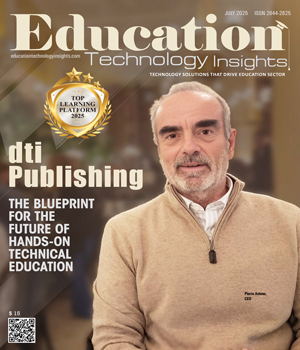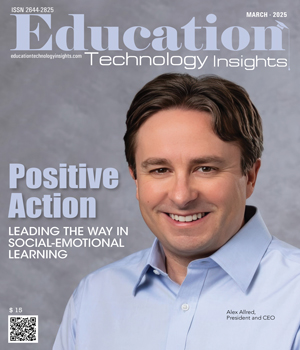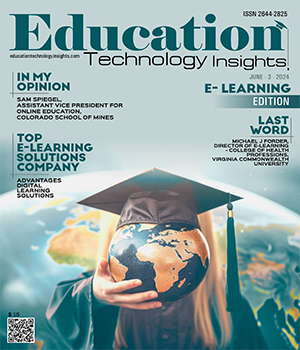THANK YOU FOR SUBSCRIBING
Be first to read the latest tech news, Industry Leader's Insights, and CIO interviews of medium and large enterprises exclusively from Education Technology Insights
Current Trends and Future Possibilities in Education
Jenny Christian, Director, STEM science and wellness, Dallas Independent School District.
 Jenny Christian, Director, STEM science and wellness, Dallas Independent School District.
Jenny Christian, Director, STEM science and wellness, Dallas Independent School District.Jenny Christian is a dedicated wellness professional who prioritizes student well-being and success. With a diverse range of responsibilities, she provides expert wellness guidance, collaborates with construction bond services to ensure optimal learning environments, and analyzes wellness data to improve student support. With her broad skill set and commitment to excellence she currently serves as STEM Director of science and wellness at Dallas Independent School District. Jenny's passion for supporting student achievement is evident in her data-driven approach and collaborative mindset.
What are some of the changes that you have observed in the sector in the last 18 to 24 months?
The education industry has recently undergone a change towards catering to students' academic, social, and emotional needs. This shift has been influenced by pandemic-related research on virtual and face-to-face learning. Personalized education has become a priority, focusing on meeting students where they are in their academic journey. Virtual learning has resulted in significant socialization gaps, affecting students' social emotional development and ability to collaborate in STEM situations. Education has shifted to provide virtual and community-based opportunities for building critical thinking and necessary skills beyond academic disciplines. Citizen science is a solution that can bridge the gap, facilitating collaboration and discourse in STEM.
Can you discuss some of the current trends in the industry?
One of the current trends in the industry is the heavy reliance on learning management systems or content management systems by teachers to interact with students in a way that is adaptive and responsive to their needs. This shift is in response to the work style of Generation Alpha, which values collaboration and adaptability in outcomes. Additionally, the use of technology such as device-agnostic and app-driven technologies, as well as voice recognition, is empowering learners to address problems holistically through discourse and collaboration. It is important for educators to stay up-to-date with the latest technology trends to effectively engage with this generation of learners.
How do you envision the future?
I believe that technology will be approached in a more purposeful manner, with an emphasis on using it to solve existing problems in the world. Technology will no longer be seen as an add-on, but rather as a means to problem solve and define solutions.
"It is important for educators to stay up-to-date with the latest technology trends to effectively engage with this generation of learners."
Technology is constantly evolving, and it is crucial to ensure that any technology implemented in education is sustainable, relevant, and usable by students. Teachers need to be provided with training on technology that is worth investing in and can make a true difference in the lives of their students.
What will be your advice to you fellow peers and colleagues?
My main advice is to focus on the descriptors of Generation Alpha. Rather than just looking at future technology trends, it is important to consider the end user and the characteristics of the generation we are serving. Generation Alpha individuals seek to be informed and empowered to make decisions for themselves. Therefore, it is crucial to foster critical thinking skills and scientific literacy.
We should not shy away from engaging in discourse with them and understanding that their questions stem from a desire for relevance to their own lives and communities. By understanding the characteristics of this generation, we can determine which technologies will best support their learning environment.
Weekly Brief
ON THE DECK
Read Also
Localising Curriculum, Globalising Opportunity
Elevating Education with Purposeful Tech-Integration
Digital Transformation with User-Centric Solutions and Collaborative Leadership
Connecting Education and Technology for Lasting Change
Putting Students First in a Global Classroom
Balancing Technology-Driven Teaching with Traditional Learning

I agree We use cookies on this website to enhance your user experience. By clicking any link on this page you are giving your consent for us to set cookies. More info



























